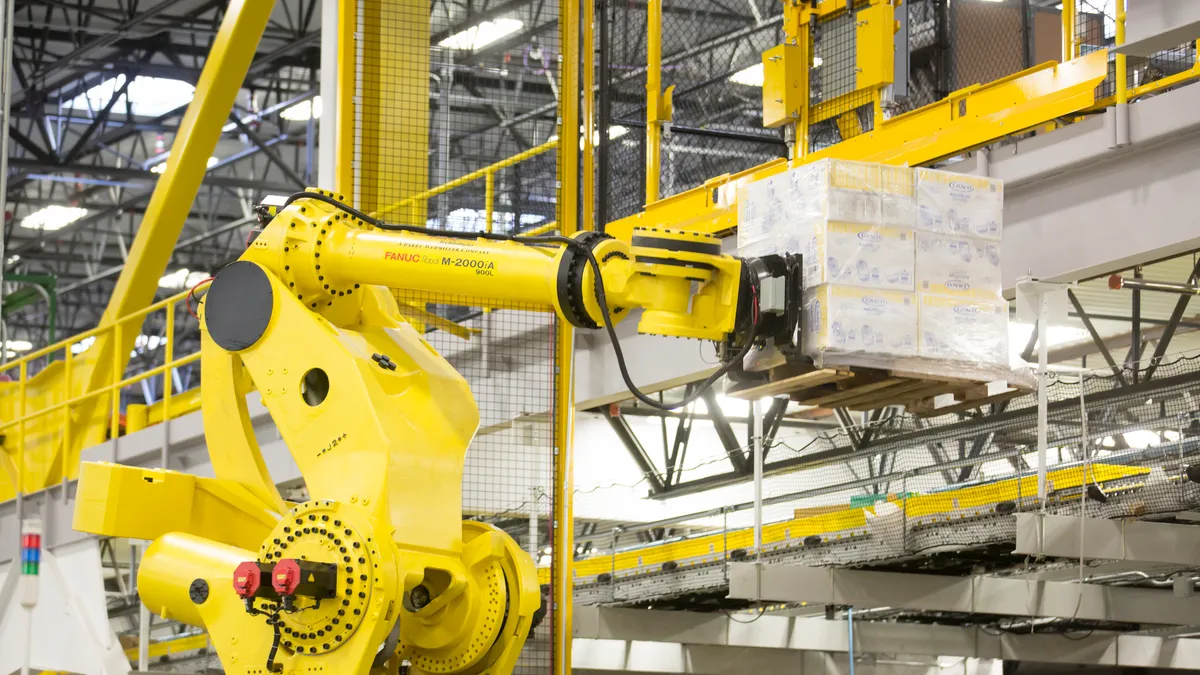While we may be moving beyond the narrative that robots will take away all jobs, financial executives looking to implement automation initiatives still have to aggressively market them to senior leadership to ensure long-term buy-in and investment.
Scaling automation across a company requires a concerted form of internal “evangelization” to ensure ongoing support and implementation, a panel of executives said at FORWARD 5, automation software firm UiPath’s customer conference in Las Vegas last week.
“I would never underestimate the fear of someone losing their job,” said Lea Heyden, team lead for robotic process automation and IT business solutions at apparel firm Puma. “You might have one or two persons that are pretty hesitant and they won't provide you with the information or they would only show you the obstacles.”
Positioning automation as a tool to support people’s work is likely to resonate across an organization, said Maxim Ioffe, director of global intelligent automation at Wesco Distribution. “If you come from the mentality that ‘I'm from the automation team and I'm here to automate your job,’ that's probably not going to get you too far.”
Getting early buy-in
As companies develop automation centers of excellence and support initiatives from the ground up, engaging the C-suite early on in the process is critical for success, executives said.
“[We were] motivating our senior leadership to understand the journey that we were embarking on, and that was important from a budget standpoint, strategy standpoint,” said Sidney Madison Prescott, global head of intelligent automation at Spotify. “After we started that … we started rolling it out to the business stakeholders and driving advocacy.”
Engaging the C-suite also means managing expectations, panelists said. Others noted that a top-down approach to automation planning across an organization needs to be supported by a pipeline of employee-led “citizen developer” programs.
“We did try to start the top-down [approach] and we got a great pipeline of ideas. Unfortunately, not every one of them was exactly implementable,” said Ioffe.
Internal marketing campaigns
Despite the tangible benefits of automation, an advocacy campaign that draws attention to important use cases is a critical enabler for ongoing buy-in across an organization, executives said. Spotify, for example, said it packages automation case studies in short-form user-friendly videos, supported by other events and other advocacy initiatives.
“We've taken a lot of the processes that we've automated and we've created these animated videos where we're showcasing demos of the original process [and] we have also started looking more deeply at ways that we can celebrate the ROI of the bots,” including celebrations that draw attention to the number of hours saved through automation, said Prescott.
A key objective of internal marketing strategies should be to help employees at various levels take ownership for automation initiatives, said Ioffe.
“We want employees to feel that it's their automation – they build it, they own it, and they can claim that success,” he said. “They take it to their executives, those executives include that in their deck to the C-suite, and that's how using these three different levers we're trying to get the C-suite attention.”












